Understanding the Signs of Meth Addiction
Understanding the signs of meth addiction
Methamphetamine, also called meth, is an extremely potent and sometimes lethal central-nervous-system stimulant. On the streets this drug is also referred to as crystal, ice, chalk, or speed. This synthetic drug creates a strong feeling of euphoria and is extremely addictive.
Originally, methamphetamine was used as a decongestant and in inhalers for bronchitis, but is rarely used today due to the high risk of addiction. Meth can be found in a white, odorless, bitter tasting powder that is easily dissolved in water. When sold on the streets, the drug is normally diluted with chemicals such as rat poisoning or baby powder. It can be consumed by smoking, snorting, injecting directly into the veins, or ingested orally. When someone ingests meth, they will experience increased focus and mental alertness without the effects of fatigue. The experience of these effects are generally interpreted as overall sense of wellbeing, intelligence, and power.
Statistics
Statistics for meth addiction
Methamphetamine represents the fastest growing drug threat in America today. The estimated 12 month prevalence rate of methamphetamine use for adults in the United States is about 0.27%, with a lifetime rate of 8.6%. There were no significant differences in methamphetamine addiction based on gender for lifetime usage, with rates estimated for men at 0.32% and for women at 0.23%. The highest abuse rates were found in individuals between the ages of 18 to 25.
Causes & Risk Factors
Causes & risk factors for meth addiction
Genetic: Since everyone is a product of their parents, those individuals who have parents with addiction struggles will be much more susceptible to addiction. This effect is particularly strong when the relative was addicted to a stimulant.
Physical: Dopamine, a chemical responsible for communication in the brain, has been linked to experiences of pleasure. Methamphetamine stimulates certain areas of the brain, causing a large amount of dopamine to be released, leading to the brain’s reward center communicating a sudden rush of pleasure. This experience of exhilaration can lead to an addiction.
Environmental: Sometimes people experience a number of negative life events in a relatively short period and are unable to cope with them. Feelings of being overwhelmed may lead to a sense of hopelessness and cause them to turn toward substances such as meth to make themselves feel better. Additionally, peer pressure is a huge factor on drug use. Those children who belong to a social group where drugs are seen as cool and accepted are more likely to use meth and become addicted.
Psychosocial: Some research has shown that there are certain personalities that are more likely to become dependent on meth, such as having an aggressive personality. Additionally, children who lack self-confidence and self-esteem are more likely to turn to drugs in order to fill some type of void. Once methamphetamine is abused, it causes negative changes in personality, which can lead to even more destructive behavior.
Risk Factors:
- Easy access to drugs
- Being lonely or depressed
- Anxiety
Symptoms
Symptoms of meth addiction
The symptoms of meth abuse and addiction can be so severe that it can be impossible to be around someone who is using, because it drastically changes their physical, social, and psychological persona. The symptoms of meth abuse can be extremely hazardous and may include:
Behavioral symptoms:
- Aggressive behavior
- Increased physical activity
- Hostile actions
- Incessant conversations
- Jerky movements
- Increased irritability
- Lying, stealing, or borrowing to obtain methamphetamine
Physical symptoms:
- Dilated pupils
- Slurred speech
- Dizziness
- Chest pain
- Insomnia
- Hypothermia
- Malnutrition
- Decreased appetite
- Impaired immune system
- Respiratory distress
- Sweats
- Loss of coordination
- Numbness
- Panic attacks
Cognitive symptoms:
- Paranoia
- Visual and auditory hallucinations
- Obsessive behaviors
- Confusion
- Compromised judgment
- Impaired decision making
- Increased attention and focus
- Brain damage
- False sense of confidence
- Delusions of grandeur
Psychosocial symptoms:
- Excessive excitation
- Anxiousness
- Nervousness
- Severe depression
- Moodiness and irritability
Effects
Effects meth addiction can have
The long-term abuse of methamphetamine has many negative consequences in various areas of life, including causing the development of addiction. Addiction is a chronic, relapsing disease, characterized by constant drug seeking behavior and use, along with changes in the brain. The numerous long-term effects of meth abuse vary from person to person, but may include:
- Psychosis (paranoia, hallucinations, repetitive motor activity)
- Deficits in thinking and motor skills
- Memory loss
- Increased distractibility
- Aggressive or violent behavior
- Legal problems or incarceration
- Mood disturbances
- Severe dental problems
- Weight loss
- Skin sores
- Broken or strained relationships
- Financial troubles
- Homelessness
- Job loss or school expulsion
- Suicide
- Death due to suicide or overdose
Withdrawal Effects
Effects meth withdrawal can have
Overdose: A meth overdose occurs when an individual has consumed an overwhelming amount of the drug; however a lethal dose of meth will vary depending on the characteristic of the drug and the individual themselves, because each person has a sensitivity to a specific amount of meth. Unlike other drugs, overdosing on meth shows no immediate signs to the user. An individual can take a lethal dose of meth and not realize right away that they have done so. Overdosing on meth is characterized by a rapid onset of physiological deterioration that will eventually lead to heart attack or stroke, which occurs suddenly and unexpectedly.
The actual effects of a meth overdose will vary depending on how much of the drug was taken and if it was taken with other drugs or not. Common symptoms that may indicate an overdose may include:
- Aggressiveness
- Confusion
- Changes in heart rhythm
- Fast breathing
- Hallucinations
- Fever
- High or low blood pressure
- Hyperactivity
- Muscle pains
- Shakes
- Nausea and vomiting
- Diarrhea
- Coma
- Stroke
- Death
Withdrawal: When someone who is physically addicted to methamphetamine attempts to stop taking the drug or decrease the amount, withdrawal effects may occur, which include:
- Psychotic symptoms
- Severe depression
- Suicidal thoughts
- Anxiety
- Fatigue
- Chills
- Sweats
- Nightmares
- Cravings
- Physical agitation or retardation
Co-Occurring Disorders
Meth addiction & co-occurring disorders
There are a number of conditions found to co-occur with methamphetamine abuse. These include:
- Other substance use disorders – in particular those that have calming or sedating effects used to counter the negative effects of methamphetamine when it is wearing off
- Gambling habit disorder
- Major depressive disorder
- Dysthymia
- Post-traumatic stress disorder
- Attention deficit hyperactivity disorder (Adult onset)
- Antisocial personality disorder
- Cardiac problems due to increased stress on the heart
Our treatment center is in Salt Lake City (Midvale) and serves residents from all over Central and Northern Utah. Call one of our admissions counselors today for a free, confidential screening to see how Highland Ridge can help you regain a happy, healthy life.
Frequently Asked Questions
Frequently asked questions about meth addiction
What are the signs of meth use in adults?
When a person abuses meth, he or she will display many of the following:
- Acting with uncharacteristic energy
- Prioritizing meth use over spending time with family and/or friends
- Scabs and sores on face, arms, and other body parts
- Poor decision-making skills
- Dramatic shifts in mood
What are the symptoms of meth poisoning?
Meth poisoning can cause a wide range of seriously dangerous consequences, and if someone who has been abusing meth begins showing any of the following signs, seek immediate medical attention:
- Increased body temperature
- Rapid heartbeat
- Loss of consciousness
- Seizure
- Respiratory distress
What are the signs of methamphetamine overdose?
An overdose on meth can produce very dangerous outcomes. If someone who has been abusing meth begins showing any of the signs of overdose listed below, seek immediate medical attention.
- Increased body temperature
- Rapid heartbeat or cardiac arrest
- Loss of consciousness or coma
- Seizure or stroke
- Respiratory distress
How do you help a meth addict?
You can help a meth addict by seeking out treatment resources in his or her area. Share what you find with your friend or loved one, and be encouraging throughout the conversation. Be prepared for some possible resistance to the idea of entering treatment, but remain steadfast in your support.
Can a person overdose on meth?
Yes, a person can overdose on meth, and the results can be deadly. If someone who has been using meth begins showing any of the signs listed below, seek immediate medical attention.
- Increased body temperature
- Rapid heartbeat or cardiac arrest
- Seizure or stroke
- Respiratory distress
- Loss of consciousness or coma
What are some methamphetamine addiction statistics?
According to recent reports, researchers have determined that more than 1 million women and men in the United States have abused methamphetamine within the past year. The damaging effects of this form of addiction can be seen in the over 100,000 emergency room visits every year that are attributed to meth abuse.
Can meth cause a heart attack?
Yes. Meth use can cause a heart attack, cardiac arrest, and further complications to internal organs. If someone who has been abusing meth begins showing signs of an elevated heart rate, seek immediate medical attention.








